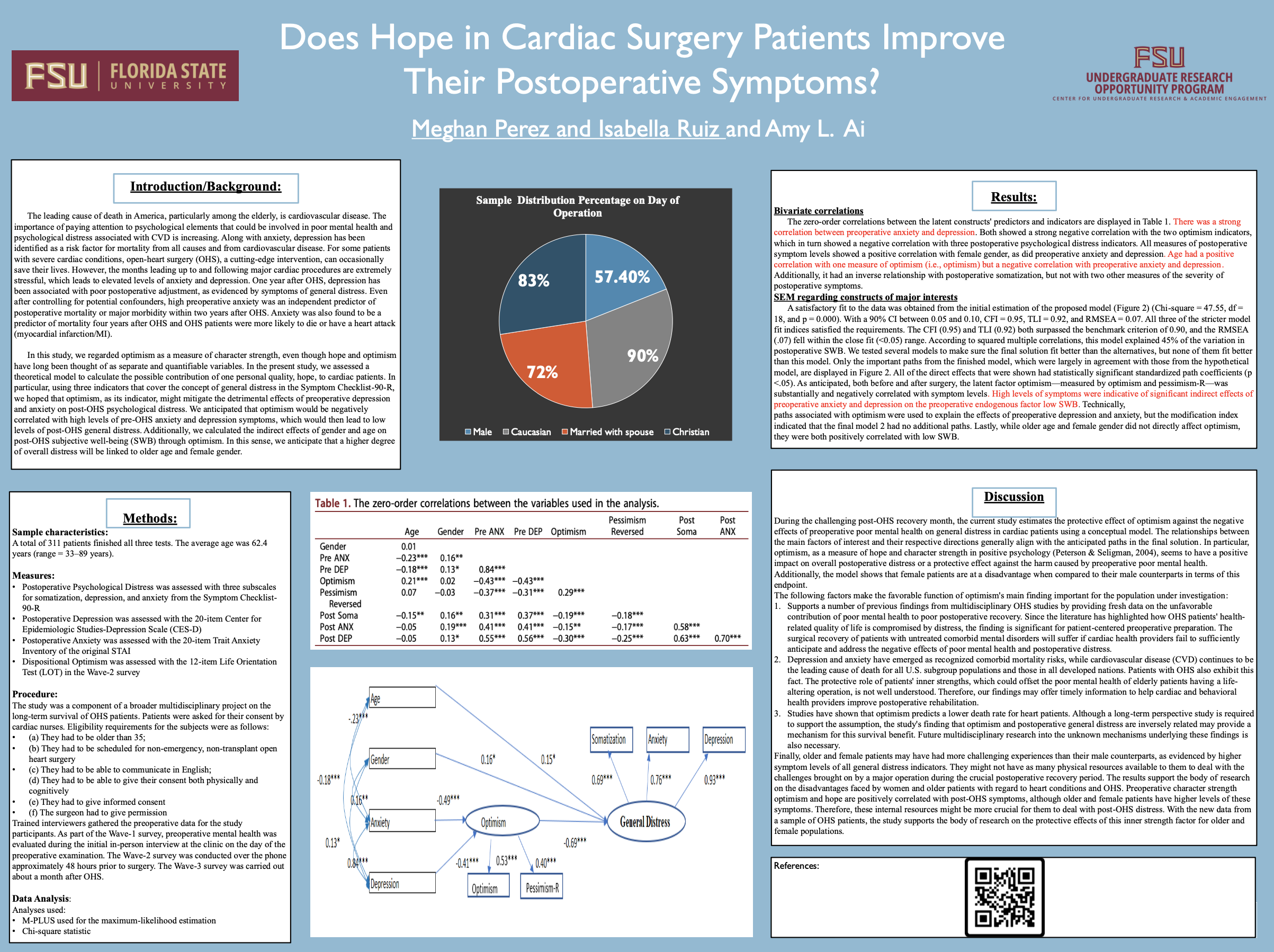Research Symposium
25th annual Undergraduate Research Symposium, April 1, 2025
Isabella Ruiz Poster Session 2: 10:45 am - 11:45 am/ Poster #127
BIO
My name is Isabella Ruiz, and I am an economics major at Florida State University with aspirations for a career in law. My primary role in this research involved conducting literature reviews using academic databases and designing a research poster to present my research mentor’s findings. Through this process, I developed strong analytical and critical thinking skills, enhanced my ability to synthesize information, and gained experience in preparing research for publications and presentations, as well as effectively communicating research findings through both visual and written formats.
Does Hope in Cardiac Surgery Patients Improve Their Postoperative Symptoms?
Authors: Isabella Ruiz, Amy L AiStudent Major: Economics
Mentor: Amy L Ai
Mentor's Department: College of Social Work Mentor's College: College of Social Work Co-Presenters: Meghan Perez
Abstract
For middle-aged and older patients with heart conditions, anxiety and depression are significant comorbid mortality risks. Open heart surgery (OHS) is a life-changing procedure that can induce psychological distress, potentially hindering recovery in the postoperative period. Numerous studies highlight the positive health effects of optimism, a psychological trait associated with hope and resilience. Optimism has been linked to a lower mortality rate from cardiovascular disease, the leading cause of death in the United States. However, limited research has examined whether optimism mitigates the harmful impact of preoperative anxiety and depression on overall psychological distress following OHS. This multidisciplinary clinical study utilized a three-wave survey to evaluate a hypothetical model of these relationships in 311 U.S. patients before and one month after undergoing OHS. Structural equation modeling (SEM) was used to predict postoperative psychological distress. Optimism was measured using two subscales of the Life Orientation Test (LOT), while general psychological distress was assessed through the SCL-90 subscales for somatization, depression, and anxiety symptoms. The final model demonstrated a strong fit. Findings revealed that preoperative depression and anxiety had a more substantial negative effect on postoperative distress than optimism had in alleviating it. Additionally, female gender and older age were directly correlated with higher levels of postoperative distress. These results confirm the protective role of optimism in reducing the adverse psychological effects of poor mental health on heart patients. Health professionals should focus on strengthening patients’ inner resilience to promote better mental health outcomes during recovery.
Keywords: Psychological distress, Optimism, Literature review.


